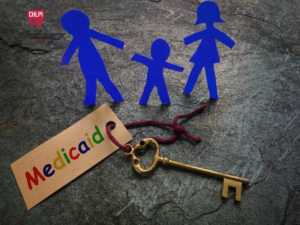Harvard Law School Food Law and Policy Clinic and The Global FoodBanking Network identify policy recommendations designed to decrease food waste, support food donation, and mitigate climate change in China.
March 15, 2023 (China) —Today, the Harvard Law School Food Law and Policy Clinic (FLPC) and The Global FoodBanking Network (GFN) released a new analysis of food donation laws and policies in China and recommendations on how Chinese leaders can help reduce food waste, support the food needs of people experiencing food insecurity, and mitigate climate change. The analysis and recommendations are part of The Global Food Donation Policy Atlas, which maps laws and policies affecting food donation around the world.
China generates almost a quarter of the world’s total food loss and waste (FLW), creating a major environmental, economic, and social opportunity. The land, water, carbon, nitrogen, and phosphorus footprints of China’s food waste alone are comparable to those of an entire medium-sized country. In China, about 27% (or 349 million tons) of food produced for human consumption is lost or wasted annually, yet nearly 10% of the population (or 150 million people) is undernourished.
China has already taken important steps to address FLW and its impacts on climate change and food security. The government launched the comprehensive “Clean Plate” campaigns in 2013 and 2018 to address food waste in government institutions and at the consumer level, respectively. In 2021, the government enacted a sweeping Anti-Food Waste Law, which includes creative first-of-its-kind measures to fight food waste in the restaurant and catering sector, establish a food donation system, and target media that encourages food waste behavior.
Building off of the success of these initiatives, the Atlas includes a series of recommendations informed by in-country stakeholders to help strengthen the food donation legal and policy framework in China, including:
- Ensure food is not labeled as “expired” (and therefore impermissible to distribute) when it is still safe for consumption or donation, including by adopting national dual date labeling standards that differentiate between safety-based and quality-based date labels.
- Enact a national Good Samaritan law to provide liability protection for food donors and food recovery organizations to ensure liability concerns related to donating food do not deter potential donors.
- Sufficiently incentivize food donors and food recovery organizations to engage in food donation, including by exempting food donation from the list of transactions that are VAT-taxable.
- Require the donation of surplus food or impose monetary penalties for food sent to landfills that is still suitable for human consumption so that all food supply chain actors contribute to food recovery and donation efforts.
- Use government policies and expenditures to support food donation by creating government grant opportunities for food donation infrastructure.
“China’s impact on the global economy and environment is significant and it has already demonstrated its ability to serve as a global leader in reducing food waste,” said Emily Broad Leib, clinical professor of law at Harvard Law School and faculty director of the FLPC. “Adopting policies like the ones we propose could build on that leadership and at the same time benefit Chinese people who experience hunger and food insecurity, Chinese producers and consumers who bear the cost of food waste, and Chinese leaders striving to meet their international environmental commitments.”
“Surplus food that is discarded causes environmental damage and can be a contributor to malnutrition. The recommendations in this paper present practical steps that China can take to address food waste at the government and consumer levels,” said Lisa Moon, President and CEO of The Global Foodbanking Network. “The Chinese government has the opportunity to adopt policies, such as those that would increase food donations, which, in turn, would reduce greenhouse gas emissions and provide nutritional benefits to local communities.”
The Global Food Donation Policy Atlas, supported by Walmart Foundation, identifies existing laws and policies that support or hinder food recovery and donation in a comprehensive Legal Guide and offers Policy Recommendations for strengthening frameworks and adopting new measures to fill existing gaps. The analysis featured in these country-specific reports are also encapsulated in an interactive atlas tool that allows users to compare policies between countries participating in the project.
Atlas project research is available for 21 countries: Argentina, Australia, Canada, China, Chile, Colombia, Costa Rica, the Dominican Republic, Ecuador, Ghana, Guatemala, India, Indonesia, Kenya, Mexico, Nigeria, Peru, Singapore, South Africa, the United Kingdom, and the United States. An interactive map, Legal Guides, Policy Recommendations, and Executive Summaries for each country are available at atlas.foodbanking.org.


